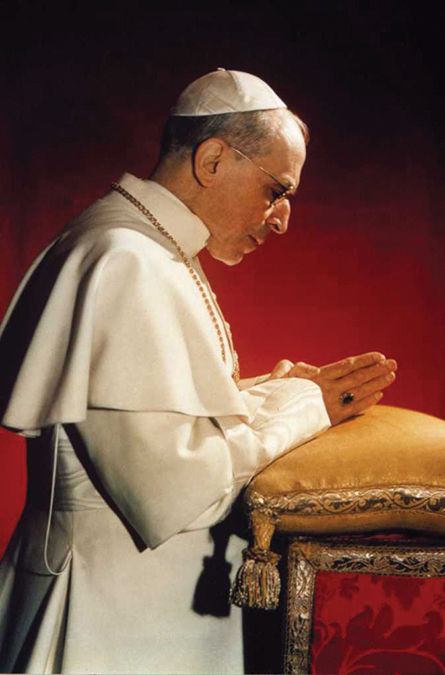Somewhere between the Cambrian and Cretaceous epochs when I was earning my living writing television shows, there existed a code of sorts not that dissimilar to the one described in the Turner Classic Movie documentary on the motion picture industry.
The reaction of we TV writers and producers was also very similar to the disdain expressed by the documentary.
When a TV script was completed to the satisfaction of a producer’s sometimes inscrutable artistic sensibilities, it was sent off to the Network for review. This also included the script getting a thorough going over in the “Standards and Practices” department at one of the Big Three television networks that dominated the primordial ooze of past television like so many Gigantosauruses.
And each of these networks had Standards and Practices departments usually fronted by up and coming junior executives who just landed their first “real” job after getting that medieval architecture degree, and who had the unenviable task of giving their notes to hard-boiled producers, of whom many that I worked for did not have medieval architecture degrees or, in some cases, high school diplomas.
I suspected the networks were not as interested in preserving the purity of the American viewing public as they were the good will of advertisers and, frankly, I’m not all that sure how daring and shocking we were when it came to writing cop and detective shows in four acts with a teaser and a tag.
Still, having to prove to their bosses that they were relevant and to their parents that a medieval architecture degree was going to be worth something after all, they provided all manner of “suggestions” to change scripts and make them less offensive.
In short, the Standards and Practices guys wanted to keep their jobs and the networks wanted to keep the purveyors of soap and the Federal Communications Commission off their collective backs.
As a young television consumer, being born at the tail end of the infamous Baby Boom Generation, the worst thing I was ever going to be exposed to on television was mildly insensitive racial stereotyping on “McHale’s Navy.”
As a 20-something young adult when I started a career in television, we were more sensitive, but the premise of most of the shows maintained the same formulaic patina. A good cop or detective caught a bad guy and saved the day — repeat as necessary.
Do not want to sound like the cranky old man waving his cane on his front porch yelling at kids to get off his lawn, but the temperature is certainly a lot higher in television today when it comes to the exploring and even championing of the not so virtuous parts of human nature.
Context is everything and you don’t have to only portray good to be good television. But when the things the Church has always instructed us to tread lightly around are put into the context of either morally neutral or even morally good, well, then we have a problem.
Television today is over-populated with characters and plot lines for which the Catechism of the Catholic Church as well as Pius XII’s 1957 encyclical, Miranda Prorsus, counsels caution.
Content that when I was working in the industry, would never even be attempted to sneak past the Standards and Practices guy, is now run-of-the-mill television fodder. So many traits we are instructed to avoid the near occasion of are now highlighted and put into a positive light that it may be stunting our internal moral compasses.
For example, the number of co-habiting couples on television cannot be counted. If you played a drinking game where you took a shot of whiskey every time a sitcom made a clever or clumsy sexual reference, you would be flat on your face on the floor in five minutes.
I have been out of the television writing business for some time, so if there still are Standards and Practices college wunderkind still doing it, their standards and practices are a little looser and pliable than ever before.
Movies have a ratings system, but the day a film is released in theaters a clock begins to tick. And it isn’t long before it appears via a pay-per-view or Netflix delivery system and beamed straight into someone’s living room.
Pius XII sounds down right prophetic in his encyclical when speaking of television: “Radio and television shows, since they easily penetrate into the domestic circle, threaten to undermine the protective barriers by which the education of the young must be kept safe and sound until such time as advancing age gives the strength necessary to enable them to overcome the buffeting of the world.”
When what used to be taboo becomes the norm and can reach right into our homes, not only is Pius XII’s advice worth heeding for “the young,” but maybe we need to channel our inner middle-aged bespectacled censor.
We don’t need to pound tables and rail against the wanton disregard for decency, though there are times when, as oh so sophisticated as I like to think I am, I reach for the nearest table to pound when some particularly offensive thing transmits faster than I can click my remote control.
Rather, I think it’s more reasonable and effective to just become, as Pius XII teaches, more discerning consumers and learn how to divide the wheat from the chaff.
Robert Brennan has been a professional writer for more than 30 years, including many years in the television industry. He has been a contributing writer for the National Catholic Register for many years and has also been published in Our Sunday Visitor and This Rock.

